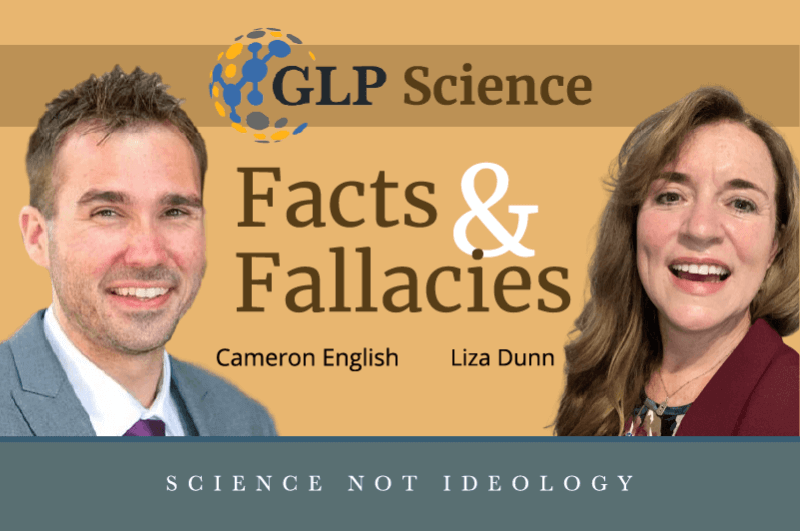Podcast:
Podcast: Play in new window | Download
Subscribe: RSS
Video:
Join hosts Dr. Liza Dunn and GLP contributor Cameron English on episode 243 of Science Facts and Fallacies as they break down these latest news stories:
After Elon Musk purchased Twitter in 2022, the popular social media platform, now dubbed “X,” reverted to a digital wild west. Once-banned users were allowed back on the site, and X liberalized its moderation policies. Evidence also emerged that Twitter had collaborated with both Republican and Democratic presidents to suppress ideas their administrations found objectionable. Free speech advocates have generally celebrated the changes under Musk’s leadership, though some critics allege X is now home to the wildest conspiracies, scientific misinformation and other forms of misleading and even harmful content. Have we lost a forum for rational discussion, or is X better as a freer platform?
EWG has launched a campaign warning parents that their children’s schools may be adjacent to farms that utilize pesticides. This bit of geography trivia has no bearing on public health—pesticide use is tightly regulated to protect us from harm—but it’s a typical example of how activist groups abuse factual information to bolster their ideological goals. Let’s take a closer look at EWG’s claims about pesticides and schools.
As he tries to lure voters away from his rivals in the 2024 presidential race, RFK, Jr. has returned to a time-tested strategy: accusing the pharmaceutical industry of putting profits ahead of public health. If elected, Kennedy says he will shift the federal government’s focus (and research funding) away from infectious diseases and toward chronic health conditions. Pharma companies don’t want to develop cures for these diseases, Kennedy claims, because it would cost them money. Healthy people don’t buy expensive drugs, his argument goes. Is there any truth to this claim, or is Kennedy just trying to tap into popular frustration with the medical establishment after COVID?
Dr. Liza Dunn is a medical toxicologist and the medical affairs lead at Bayer Crop Science. Follow her on X @DrLizaMD
Cameron J. English is the director of bio-sciences at the American Council on Science and Health. Visit his website and follow him on X @camjenglish































